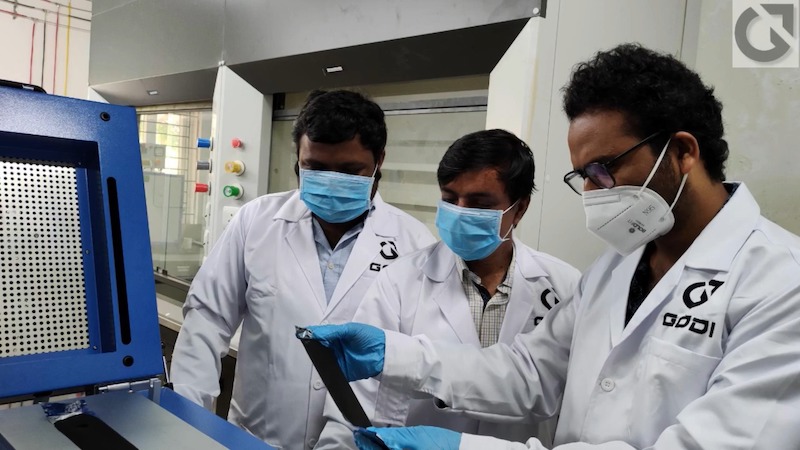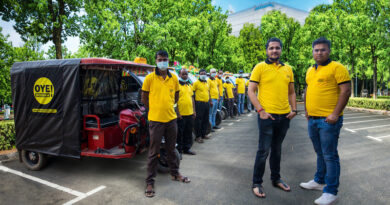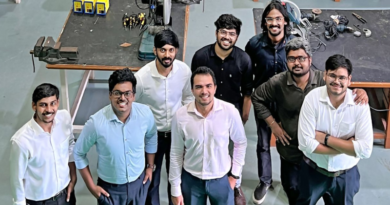Godi India plans to disrupt India’s Li-ion battery space by building the first Giga factory for cell manufacturing
According to projections, the global lithium-ion battery market is expected to grow from $36.7 billion in 2019, to $129.3 billion by 2027, at a CAGR of 18.0%. Based out of Hyderabad, Godi India is a private R&D house that aspires to establish India’s first Giga factory for indigenous Li-ion cell manufacturing by 2023. The bootstrapped company currently has 32 employees including 13 PhDs and engineers working on cell technology and supercapacitors.

This interview with CEO and Founder – Mahesh Godi aims to explore more about their work and plans.
What are you working on in the Li-ion battery space? What is the level of technology readiness?
To avoid any ambiguity, our focus is on the cell in Li-ion battery space. Our efforts are to develop ground-breaking materials with unique cell chemistries, superiorly engineered batteries and supercapacitor cells. We have our prototype ready. Very soon, we will be starting indigenous lithium-ion cell manufacturing.
We are going to be the first in India to commercially manufacture advanced Lithium-ion cells and supercapacitors with our own indigenous technology.
When are you expecting to be ready to market?
Our supply chain has been set up. We are talking to different vendors worldwide to procure the best machines for our manufacturing plant. We are expecting to be in the market by the end of 2021.
Can you shed any light on cell chemistry, materials or sourcing at Godi?
Currently, we are working on two different chemistries with intellectual cell engineering to cover a wide range of applications: 1) Ni-rich//Si-Graphite and 2) LFP//Graphite.
With that, most of our materials are procured in India except cathode materials. We also use water-based processing to cut down the production cost.
Can you provide more information on any technical feats your team has achieved?
We are India’s only energy player with end-to-end solutions: from material to design to production, of cells across a range of industrial applications. We are bringing new advanced chemistry, next generation battery solutions that will provide safer, cheaper and longer life lithium ion batteries. We have worked on different aspects of a cell to achieve this, starting from the material to the engineering of the cell design.
Tests have shown that our proprietary electrolyte formulation delivers better cycling performance and thermal stability as compared to commercial 21700 cells. GODI’s NMC811//Graphite cell with novel electrolyte formulation retained 82% of capacity after 400 cycles whereas the commercial cell retained 75%.

What are the main challenges with making cells in India – in your experience?
Main challenges in making cells in India is the lack of technology know-how. Another one is securing raw material supply chain and identifying the right choice of materials and cell chemistry for Indian climatic and road conditions. At Godi, we have brought back to India almost 13 PhDs to bring technological and manufacturing expertise. With that, we are closely working with Indian suppliers to produce battery grade materials.
What factors do you consider while making Li-ion cells indigenously that imported cells do not take into account?
Currently, lithium ion cells are imported from China and South Korea that we see in electric vehicles and other applications. These cells have several issues related to performance and cost. To maintain a certain price/cell, many manufacturers export low grade cells to India and that creates performance and safety issues. Further, Indian climatic and driving conditions are very different that further reduces performance of these cells. Even when we are using low grade cells without optimization according to Indian terrains, we end-up paying a huge cost because of other added costs like shipping and customs.
Another issue is with transportation. Because of sea shipping under uncontrolled storage conditions, these cells often suffer from electrolyte leakage. Ultimately, electrolyte leakage leads to corrosion; increases internal resistance and raises safety concerns.
At Godi, we are working on performance optimization of Li-ion cells at high and low temperatures. We are also working on improving the energy density and power density of the cell with safer engineering of the batteries for fast charging and long range EVs.
Subscribe today for free and stay on top of latest developments in EV domain.







This is an excellent achievement by Gudi Energy India. The team of experts with exposure to technology in western countries have obviously joined together to form the team. Congratulations to them for starting a Giga plant. I wish them success in their endeavour, based entirely on their own know-how which is remarkable by itself.
NMC 811 is a good choice, maintaining the high nickel content of 80%. I suggest that they could look into a single crystal cathode in view of its superior quality. The main advantage appears to be the movement of Lithium ions in all 3 dimensions. Good diffusion helps in fast charging. Longer life is also realized. NMC 532 single crystal is known, but not of NMC 811. Perhaps Godi India should look into this if they have not done so already. This may require re-engineering the electrolyte too.
C.S.Ramanathan
Battery Consultant
Ramanathancs58@gmail.com
Hi Godi & group!
Congrats!
Please check out our chemistry formulation ! http://www.inventusbioenergy.com
Congratulations to the entire team of GODI. Instead of importing Lithium from China its better to import it from Bolivia with whom India has sign a MOU . I also hope that all the Lithium Ion battery manufacturers will standardize the size, shape and specs so that the e auto-manufacturers will have better choice and it will boot the business of battery swapping in India.
Solid state batteries are all set to take over the conventional Lithium Ion batteries. Mass-less structured batteries revolution is also on its way to make entry in the e mobility segment. Sodium Ion batteries are under testing phase too !
Pratap Patil
EV consultant
Shenzhen PRC
Pingback: Graphite India acquires 31% stake in GODI for INR 50 crores • EVreporter